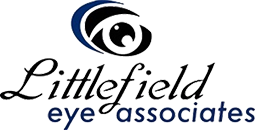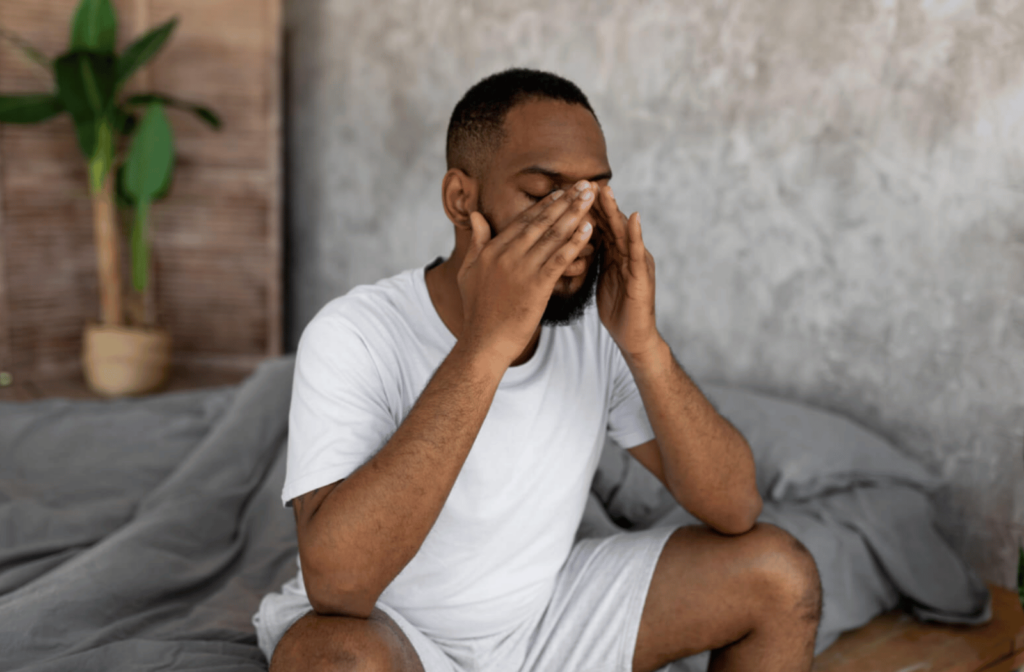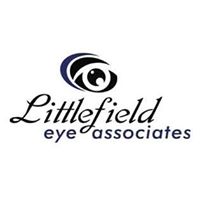Your eyes have a natural lubrication system that helps keep them moist, but sometimes this system fails, leading to dry eyes. While there are many causes of dry eyes, waking up with them in the morning can be particularly frustrating and set the wrong tone for your day.
If you’re experiencing dry eyes first thing in the morning, it may be caused by nocturnal lagophthalmos, inadequate tear production, or poor tear quality. A comprehensive eye exam can narrow down the cause so you can begin treatment for dry eyes.
What Are the Causes of Dry Eyes in the Morning?
Waking up with dry eyes can fill the start of your day with uncomfortable symptoms, including:
- Burning or stinging
- Sensitivity to light
- Blurry vision
- Watery eyes
- Grittiness
Fortunately, you don’t have to live with those daily issues. Your dry eyes can stem from a few potential causes, and finding the cause of your symptoms can help you seek effective treatment for getting lasting relief.
Nocturnal Lagophthalmos
Nocturnal lagophthalmos is a medical term for the inability to close your eyelids completely while asleep. As a result, your eyes remain partially open, causing moisture to evaporate—which can lead to dryness and discomfort when you wake up.
Apart from dry eyes, nocturnal lagophthalmos can also cause:
- Foreign body sensations
- Pain or eye irritation
- Increased tears
- Redness
- Sensitivity to light
- Blurry vision
Lagophthalmos is connected to the cranial nerve that controls eyelid movement. You may develop this condition after experiencing nerve damage due to:
- Physical injury or trauma
- A stroke
- Bell’s palsy
- Autoimmune conditions, including Guillain-Barré syndrome
Inadequate Tear Production
Tears have more functions than just lubricating our eyes. They protect your eyes from bacteria, flush out debris, and provide nutrients and oxygen to the eyes too.
Inadequate tear production, or aqueous-deficient dry eye, occurs when the tear glands, or lacrimal glands, don’t produce enough of the middle water layer of the tear film. This underproduction of tears can cause dry eyes.
Poor Tear Quality
When the quality of your tears isn’t high enough to keep your eyes moist, you may experience evaporative dry eye, which happens when your tear film’s oil, water, and mucus components are out of balance. An unbalanced composition of tears can cause your tear film to evaporate too quickly, leading to dryness and irritation.
Meibomian gland dysfunction (MGD) is the leading cause of evaporative dry eye. If the oil-producing meibomian glands are blocked or don’t function properly, you can experience MGD and changes in your tears that cause dry eyes.
Other Causes of Dry Eyes
Alongside overnight eye irritation, there are many other reasons why you may be experiencing dry eyes, including:
- Certain medications, such as antihistamines and antidepressants
- Environmental factors, including low humidity, high altitude, and smoke
- Natural aging
- Prolonged computer use
- Hormone changes
- Autoimmune conditions, such as Sjögren’s syndrome
- Blepharitis
- Allergies
Treatment for Dry Eyes
Persistent dry eye can be frustrating, but there are remedies and treatments to help relieve symptoms and restore moisture to your eyes.
Eye Drops
Eye drops are one of the first-line treatments for dry eye syndrome. Prescription drops and artificial tears can reduce inflammation, increase tear production, and slow down tear evaporation. They are designed to mimic your natural tears to keep your eyes comfortable and safe.
It’s important to discuss eye drop options with your optometrist before putting any product in your eyes. We may recommend prescription drops with a higher concentration of active ingredients or over-the-counter eye drops to refresh your eyes throughout the day.
Punctal Plugs
Punctal plugs are tiny devices inserted into your tear ducts. These are usually recommended for people who do not produce enough tears. They block the drainage of tears from your eyes, which helps maintain a steady supply of tears on your eyes’ surface.
Nutritional Supplements
Nutritional supplements may improve the quality of your tears and reduce dry eye symptoms. Omega-3 fatty acids have the potential to reduce inflammation and stimulate healthy oil production in the meibomian glands. They can be obtained from eating oily fish or taking fish oil capsules.
Other supplements that may help dry eye include:
- Vitamin A
- Vitamin D
- Vitamin B12
Talking to your optometrist before taking any supplements is essential, as some supplements may interact with other medications or have other health effects.
Intense Pulsed Light (IPL) Therapy
Intense pulsed light therapy is a modern treatment for moderate to severe dry eye syndrome. This therapy uses carefully calibrated light pulses to warm and open the blocked meibomian glands in your eyelids.
Intense-pulsed light therapy is noninvasive, can reduce inflammation, and can improve your quality of life by relieving your long-term dry eye symptoms.
Other Remedies for Dry Eyes
Self-care measures and remedies that can help relieve dry eyes at home include the following:
- Avoid rubbing your eyes, as this can further irritate them.
- Use a warm compress over your eyes for a few minutes to help stimulate tear production.
- Take a break from screens and practice the 20-20-20 rule—look at something 20 feet away for 20 seconds every 20 minutes.
- Drink plenty of water.
- Use a humidifier at your desk—at work and at home—to add moisture to the air.
Book an Eye Exam in Kansas City to Manage Dry Eye
With so many treatment options available, there are many paths to overcoming the irritation of morning dry eyes. Schedule an eye exam at Littlefield Eye Associates to get care that can help you achieve sustained relief and healthy eyes.





